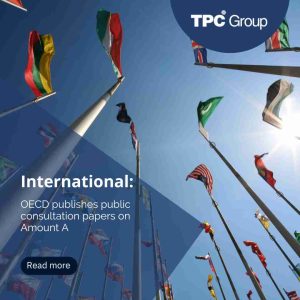The Irish Department of Finance is consulting stakeholders regarding new tax measures to prevent double non-taxation arising from outbound payments in the EU countries of low or zero-tax jurisdictions.
1. Background
Irish authorities assure this country is committed to eliminating possibilities for tax base erosion and profit shifting, according to the OECD multilateral discussions and the European Union. Recently, these published a National Recovery and Resilience Plan (NRRP), which sets out several commitments to be met for fighting aggressive tax planning, and enacted reforms for the corporate income tax with the same purpose.
2. Current Proposal
The last commitment under the NRRP is to introduce legislation to be applied to outbound payments to avoid double non-taxation. This is a key part of the legal commitment undertaken by Ireland to secure financing under the Recovery and Resilience Mechanism of the European Union, established in 2021 to provide €723.800 million in loans and grants to European Union member states.
The Irish Department of Finance issued an initial public consultation on this commitment in November 2021 and is currently ready to draft the legislation to be included in the Finance Bill 2023 (No. 2).
3. Discussed Measures
Measures will comprise withholding tax or non-deductibility of outbound payments. Dividends are no longer deductible, so the appropriate measure will be withholding at source. The tax will also apply to royalties and dividends with changes associated with the underlying charge to Irish tax on recipients in jurisdictions listed by the EU as non-cooperative, with low or no tax, aligning with the existing controlled foreign company in Ireland.
4. Current Treaties
Ireland does not plan to renegotiate any of its current tax treaties. Conversely, administrative procedures may need to be modified so that tax is withheld where the proposed withholding taxes apply to payment and the recipient has to claim a refund under the relevant treaty.
Source: Transferpricingnews.com 17/07/23



